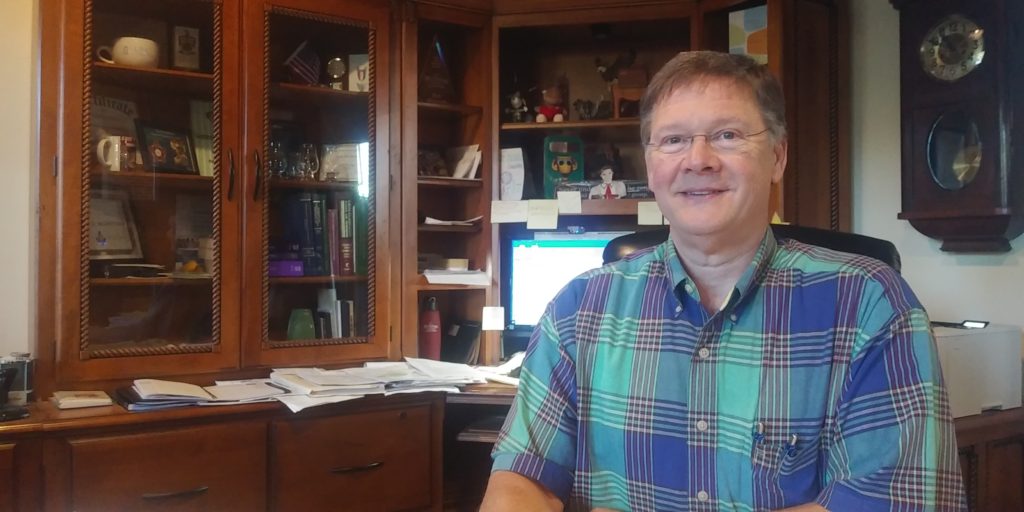
ROBERT MCINTOSH: CHANGES IN THE LEGAL PROFESSION ARE COMING FAST AND DEEP
By Dave Vieser. A law partner was once viewed as a job for life. Becoming a partner in a firm often meant being in a family of attorneys with job security who serviced established clients, while pulling down an impressive salary. Partners rarely left for other firms.
Change is happening fast in the profession, especially as Millennials increasingly populate the work force.
“Young lawyers don’t necessarily want to do the old partner track that was so common in our profession for decades” said Robert McIntosh, who owns The McIntosh Law Firm in Davidson.
All over the country, young staff attorneys have a different set of values that is making the old law firm partnership structure a thing of the past.
Susan Smith Blakely’s new book “What Millennial Lawyers Want” (Aspen Select $35.95) says millennial lawyers care less about big salaries and bonuses than they care about healthy law firm cultures and work/life balance.
“They still aspire to be partners in law firms, but they want to be partners on terms that make sense to them and within the context of their lives,” she writes.
McIntosh, who established his firm in 1997, says change is occurring “much more deeply” than he has seen in the past.
The law firm structure is morphing from a lawyer dominated, practice-centric, labor-intensive guild to a tech-enabled, process and data-driven, multi-disciplinary global industry.
“One of the benefits of the computer age is that you can do more with less. One of the curses of the computer age is you have to do more with less,” McIntosh added.
Law firms are now often partnerships in name only. Full-time executives, some without law degrees, have replaced the senior partners who once ran certain law firm operations, including human resources and accounting.
In today’s structure, lawyers are more expendable, and partners often do leave to work for a competitor if the pay is right.
They will sometimes take clients with them, too.

MORLEY
“Law firms today are fragile because they are owned by their partners, rather than by investors” says John Morley, a Yale Law School professor who authored “Why Law Firms Collapse,” a research paper. “Partner ownership creates the conditions for a spiraling cycle of withdrawals.”
The trend away from the ‘partner based’ legal firm structure has also resulted in the growth of larger one-stop shops according to a recent study by the Wall Street Journal. For example, in 1969, the country’s largest law firm was New York’s Shearman & Sterling, with 169 lawyers. Today there are 29 U.S. firms with at least 1,000 lawyers.
McIntosh’s firm has also increased in size as well, but on a different scale.
With 14 attorneys on board—up from eight last year—it’s one of the largest firms in Mecklenburg County.
The growth was necessary for a couple of reasons. “Client needs and market demands led us to the decision to expand our areas of practice. We also felt it necessary to add more depth of experience which would benefit not only our current team but our clients as well,” McIntosh said.
As the number of attorneys has grown, so too has the support staff: 60 total staff today, up from 48 two years ago.
McIntosh’s client list reflects the nature of today’s legal system. His largest is Atrium Health, whom they have represented since 1993. “We handle such items as their bad debt collections, along with workers compensation, on a nationwide basis.”
What does the future hold? Probably a continued trend away from the partner-based law firms, McIntosh believes.
McIntosh himself is the sole equity owner in the firm. “There’s just no definition of how attorneys want to work anymore. Truth is, people just don’t like the old partner system structure,” he says.

Millennials have everything, consider technology that would make them a better and wiser law firm.
Posted by legal staffing | June 5, 2020, 4:32 pmYou provide very useful things for us, thanks for that’s kind of information. After reading this we know much more things.
Posted by Usha Sorkin | July 24, 2020, 2:05 am